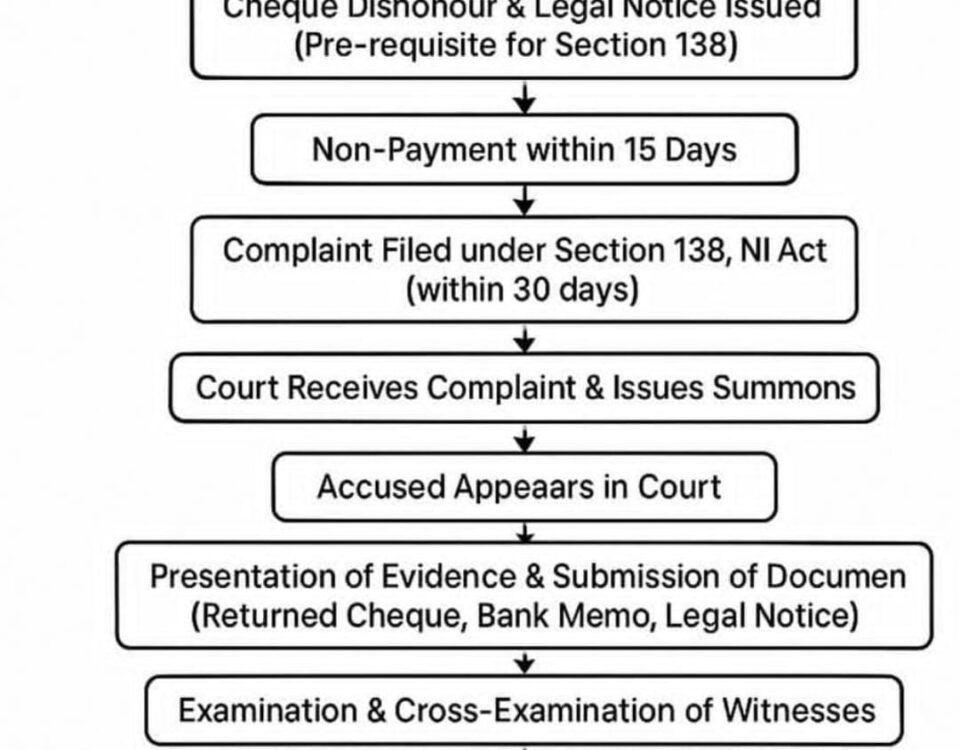- Top-rated Best Lawyer in Noida
- +91 96161-66166
- [email protected]

A Detailed Exploration of the Civil Cases Process
January 31, 2025Understanding Matrimonial Cases: A Guide for Beginners
Matrimonial cases are legal matters that arise out of marital disputes, including divorce, separation, alimony, child custody, domestic violence, and property division. Understanding the complexities of these cases is crucial, especially for those going through the emotional and legal turmoil of a marital breakdown. In this guide, we aim to explain the key aspects of matrimonial cases, providing clarity on what to expect and the steps involved in resolving such disputes.
What Are Matrimonial Cases?Matrimonial cases are legal disputes between married couples or individuals within a marriage. These cases can range from divorce to issues like child custody, alimony, maintenance, and domestic violence. The primary objective of these cases is to resolve disputes fairly, ensuring that both parties receive justice. They are handled in family courts and differ significantly from regular civil cases. Matrimonial laws in India include a range of statutes, such as the Hindu Marriage Act, Special Marriage Act, and the Muslim Personal Law, each offering different rules and guidelines for matrimonial disputes.
Have a question?
Ask the experts.
Marriage as an institution has undergone various changes and while it may turn out to be a life-long companionship for most, it simply is an excruciating ordeal for some. To accommodate the changing facets of the institution of marriage, the law has introduced amendments from time to time. Today, divorce is no longer a taboo and is rapidly being resorted to dissolve a marriage which no longer serves its purpose.
Write us a message
Get in touch
- LAWYER IN NOIDA
TS-1103, 11th Floor, Office Tower, Galaxy Blue Sapphire Plaza, Noida Extension, Greater Noida West, Uttar Pradesh-201308 (Near Gaur City Mall)
Types of Matrimonial Cases
1. DivorceDivorce is the legal dissolution of a marriage. There are two types of divorce: contested and uncontested. In contested divorce cases, one spouse may not agree to the separation, leading to a lengthy court battle. An uncontested divorce occurs when both parties mutually agree on the terms of the divorce. In India, divorce can be granted under various laws, such as the Hindu Marriage Act, Special Marriage Act, and others, depending on the religion and marriage type. Grounds for divorce vary but generally include cruelty, adultery, desertion, and irretrievable breakdown of marriage.
2. Child CustodyChild custody cases are crucial in ensuring the well-being of children when parents separate or divorce. Courts typically aim to decide custody based on the child's best interests. There are two types of custody:
• Physical Custody: Where the child resides after divorce.• Legal Custody: Who has the right to make decisions regarding the child's welfare.
The custody can be joint or sole, depending on various factors like the child’s age, emotional bond with each parent, and their financial stability.
3. Alimony and MaintenanceAlimony is financial support given by one spouse to the other after a divorce or separation. The amount is based on factors like the income of the parties, the standard of living, and the duration of the marriage. Maintenance refers to support during marriage or separation and can include spousal maintenance or child maintenance.
4. Domestic ViolenceDomestic violence cases occur when one spouse or family member physically, emotionally, or sexually abuses another. Laws like the Protection of Women from Domestic Violence Act, 2005, were enacted to safeguard women from such abuse and provide them with immediate relief.
5. Property DivisionProperty division in a divorce is often contentious. The law considers whether the property is marital or separate, the contributions of each spouse, and other factors to determine how assets should be divided.
The Legal Process of Matrimonial Cases
Filing the Case : The process begins when one party files a petition for a matrimonial case, such as for divorce, maintenance, or custody, in a family court. The petitioner must provide valid reasons for filing the case, which the court will examine before proceeding.
Court Hearings and Evidence : Once the case is filed, the court schedules hearings. Both parties must present evidence to support their claims. This may include financial records, testimonies from witnesses, and other relevant documents. Matrimonial cases can take months or even years, depending on the complexity of the case and the willingness of both parties to settle.
Mediation and Settlement: Many matrimonial cases are resolved through mediation, where a neutral third party helps the couple reach a mutual agreement. Mediation can help reduce the time and costs involved in litigation and is often the preferred method in matrimonial disputes.
Grounds for Divorce in India
India’s divorce laws vary based on the religion of the couple, but there are common grounds for divorce across the different personal laws. These include:
1. Adultery : One of the most common grounds for divorce, where one spouse engages in a sexual relationship outside the marriage.
2. Cruelty : Mental or physical cruelty that endangers the well-being of the spouse is a valid ground for divorce.
3. Desertion : If one spouse leaves the other without consent or a reasonable explanation for a continuous period, desertion can be used as grounds for divorce.
4. Irretrievable Breakdown of Marriage : This is a relatively newer ground for divorce and refers to situations where the marriage has broken down beyond repair, often due to long-term separation.
The Role of a Family Lawyer in Matrimonial Cases
A family lawyer plays a crucial role in matrimonial disputes. They provide legal counsel, help with paperwork, and represent clients in court. Having a skilled family lawyer is essential for ensuring that the case is handled properly and that the client’s rights are protected.
A family lawyer can help in the following ways:
• Filing Petitions: Assisting in drafting and filing divorce, alimony, or custody petitions.
• Mediation and Negotiations: Acting as an intermediary during settlement discussions.
• Representation in Court: Advocating for the client’s interests in front of the judge.
Challenges in Matrimonial Cases
Matrimonial cases can be emotionally draining and legally complex. Some of the major challenges include:
• Long Legal Proceedings: Matrimonial cases often involve extended court battles, especially in contested divorces.
• Financial Strain: Legal fees and the cost of supporting oneself during a divorce can create financial difficulties.
• Emotional Toll: Divorce, custody battles, and allegations of domestic violence can take a significant emotional toll on individuals and families.
Conclusion
Matrimonial cases are a complex and emotionally charged aspect of family law. Whether you’re facing divorce, custody disputes, or other related issues, it’s essential to understand the legal processes and challenges involved. A family lawyer can guide you through the intricacies of the case, ensuring that your rights are protected and helping you reach a fair resolution. Always approach matrimonial cases with proper legal counsel and emotional support to navigate these difficult times successfully.
Matrimonial cases are legal disputes between married couples or individuals within a marriage. These cases can range from divorce to issues like child custody, alimony, maintenance, and domestic violence. The primary objective of these cases is to resolve disputes fairly, ensuring that both parties receive justice. They are handled in family courts and differ significantly from regular civil cases. Matrimonial laws in India include a range of statutes, such as the Hindu Marriage Act, Special Marriage Act, and the Muslim Personal Law, each offering different rules and guidelines for matrimonial disputes.

